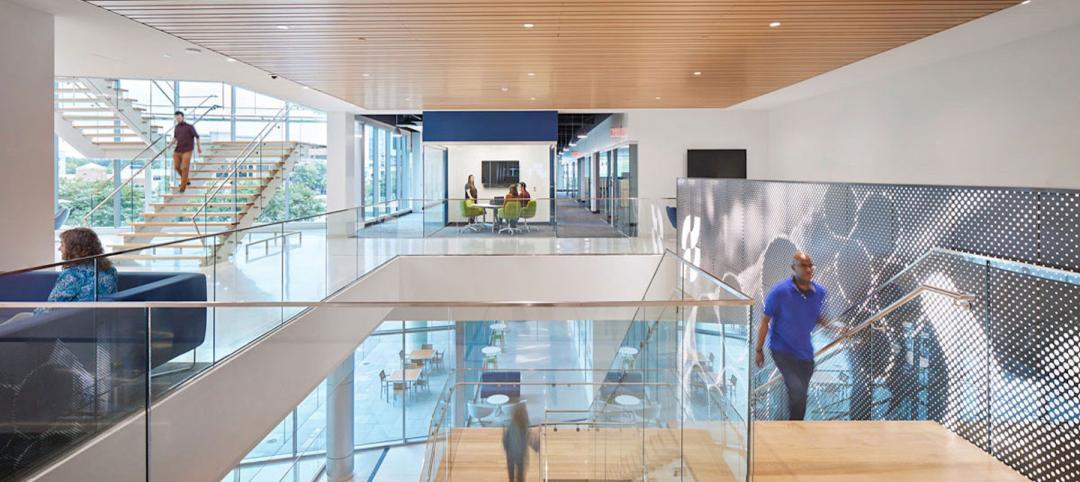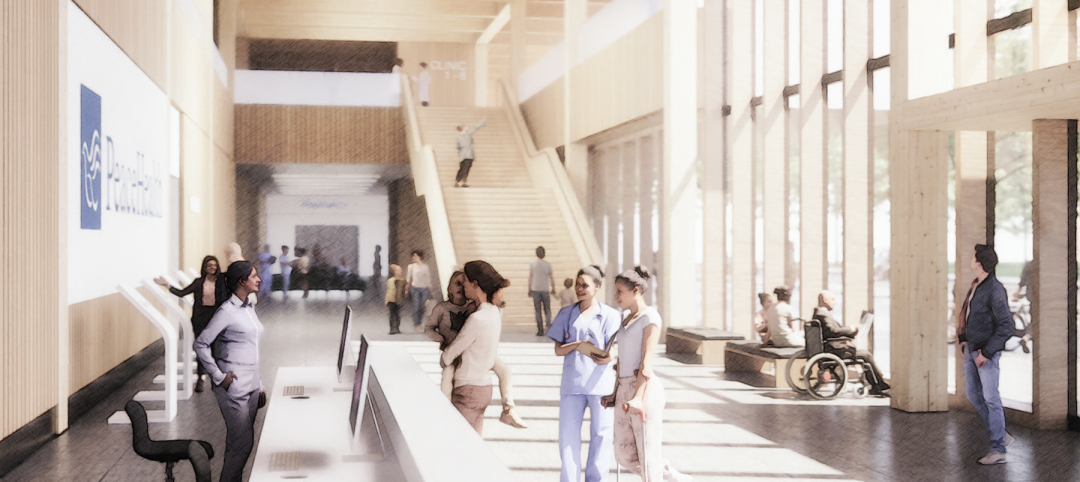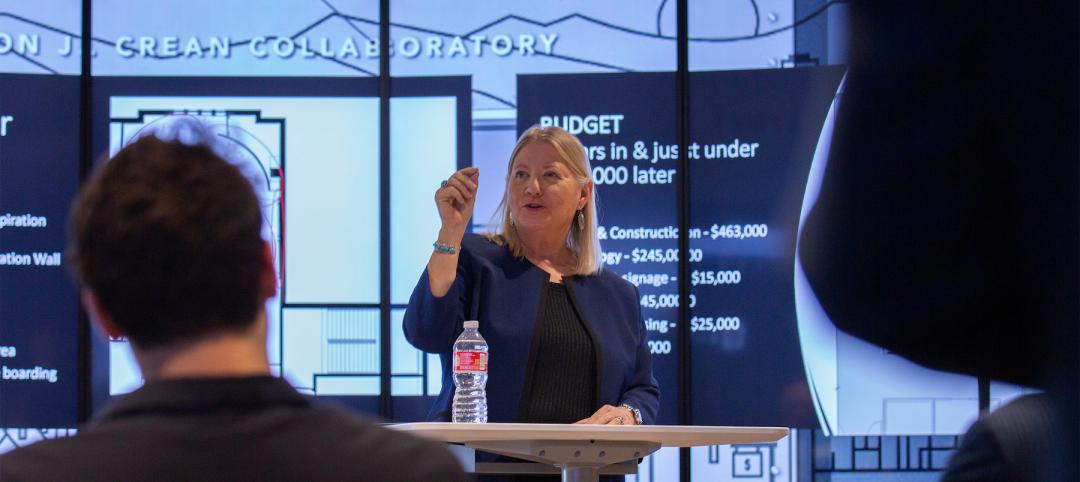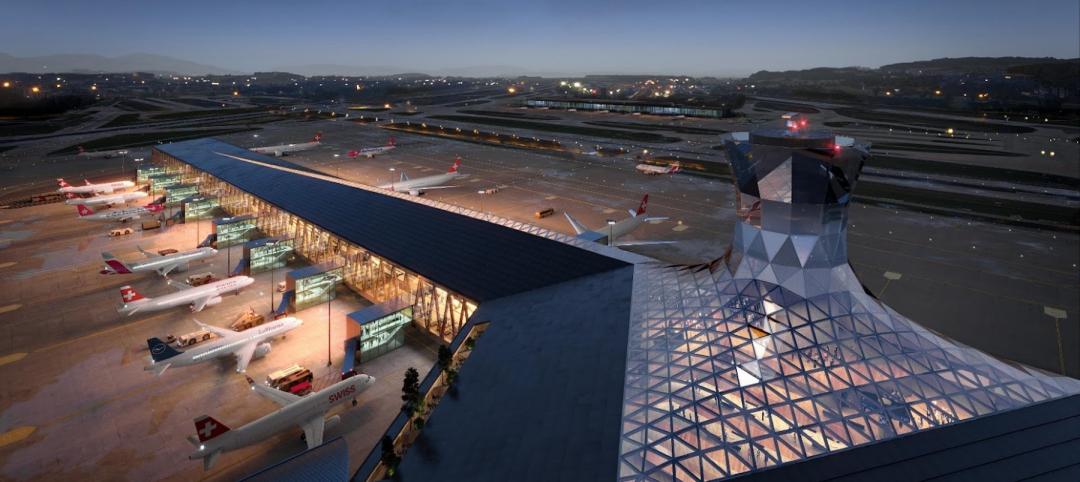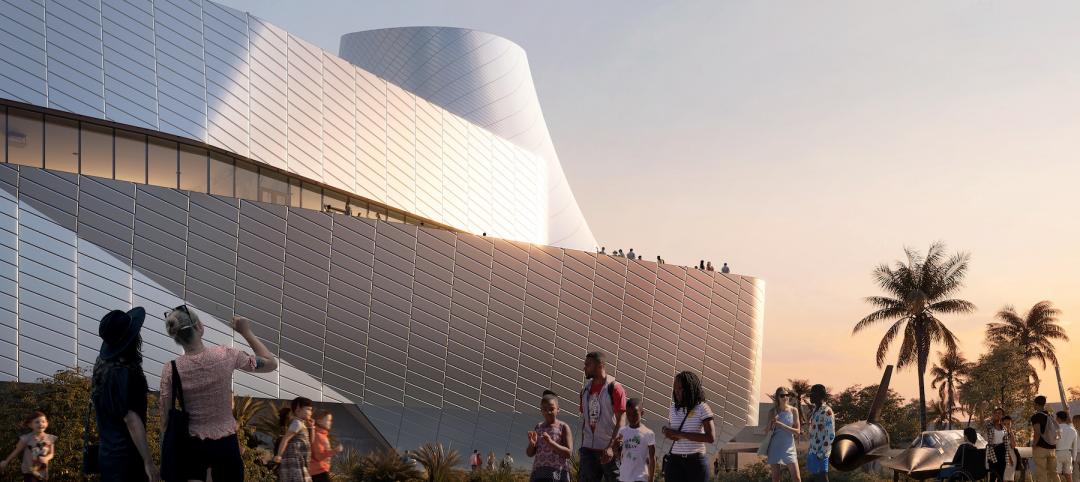Making Veterans Administration healthcare projects “better planned, better delivered” is the new goal of the VA’s Office of Construction and Facilities Management, according to Executive Director Stella S. Fiotes, AIA.
CFM plans, designs, and constructs (with the help of private-sector AEC consultants, of course) all VA projects greater than $10 million in value. The office has responsibility for design construction standards, sustainability, seismic corrections, historic preservation, and physical security.
The VA has a massive portfolio—151 hospitals, 827 community-based outpatient clinics, and 300 veterans’ centers, Fiotes told attendees at the recent American College of Healthcare Architects/AIA Academy of Architecture for Health (ACHA/AAH) Summer Leadership Summit in Chicago. Nearly two-thirds of its facilities are more than 60 years old, and 30% have a historic designation or could qualify for one.Fiotes said the VA is in the midst of a major policy shift, from “figuring out what’s broken and fixing it as much as possible”—a strictly brick-and-mortar approach—to “figuring out what services veterans need and adapting service-delivery models, facilities, and funding distribution to better meet those needs.”
The new policy, known as VA Facilities Management Integrated Planning, is directed at addressing such concerns as the need to right-size facilities based not only on where veterans are today, but where they’ll be in the future, given that many older veterans are expected to move to the warmer regions of the U.S.
Fiotes said the VA is also looking to forge affiliations with public agencies, universities, and healthcare organizations as a way to stretch its capital investment budget. Serving the healthcare needs of veterans in rural areas remains a persistent concern, she said, as does the need for the VA to promote wellness and disease prevention for its clients.
Another major initiative: the Patient-Aligned Care Team. “Primary care is the foundation of VA healthcare delivery,” said Fiotes. PACT is designed to provide “one-stop” patient-centered care through coordinated “teamlets” consisting of a physician, a nurse, an LPN or technician, and a clerk, along with a clinical pharmacist, a dietitian, and a social worker. “No clinics have been designed based on this model, but we’re working on it,” said Fiotes. “We believe they can save 15-20% on costs.”
As for sustainability, Fiotes said all VA projects must earn at least LEED Silver or two Green Globes; every project is evaluated for the feasibility of using renewable energy. Structural resilience, particularly against the threat of rising sea levels or a tsunami, has become a priority as well.
Eight major VA projects—in Las Vegas, Milwaukee, Pittsburgh, San Antonio, San Diego, Cape Coral, Fla., and two in Biloxi, Miss.—will undergo post-occupancy evaluation this fiscal year to determine how well the buildings are meeting the needs of veterans and healthcare providers. Starting in FY 2014, all major projects will experience POEs within 18-24 months of occupancy.
Two innovation programs—selected from over 450 suggestions from Veterans Health Administration employees—are under way: the development of standardized designs for outpatient clinics, and research on making wayfinding in VA facilities consistent across the board.
Fiotes ended her talk to ACHA/AAH attendees on a tempting note: “We have over $6 billion in projects that have been identified and need to be acted on.”
Read our full report from the ACHA/AAH Summit.
Related Stories
Market Data | Jul 1, 2022
Nonresidential construction spending slightly dips in May, says ABC
National nonresidential construction spending was down by 0.6% in May, according to an Associated Builders and Contractors analysis of data published today by the U.S. Census Bureau.
Building Team | Jul 1, 2022
How to apply WELL for better design outcomes
The International WELL Building Institute (IWBI) cites attracting top talent, increasing productivity, and improving environmental, social or governance (ESG) performance as key outcomes of leveraging tools like their WELL Building Standard to develop healthier environments.
Building Team | Jul 1, 2022
Less portable potty, more movable restroom
Some contractors are packing up their portable potties and instead using the H3 Wellness Hub.
Market Data | Jun 30, 2022
Yardi Matrix releases new national rent growth forecast
Rents in most American cities continue to rise slightly each month, but are not duplicating the rapid escalation rates exhibited in 2021.
Headquarters | Jun 30, 2022
Lenovo to build its new global headquarters in Beijing
Washington, D.C.-based architecture and design firm CallisonRTKL has announced it will create the new global headquarters in Beijing for Lenovo Group, a Chinese multinational personal technology company.
Mass Timber | Jun 29, 2022
Mass timber competition: building to net-zero winning proposals
The 2022 Mass Timber Competition: Building to Net-Zero is a design competition to expand the use of mass timber in the United States by demonstrating its versatility across building types and its ability to reduce the carbon footprint of the built environment.
Laboratories | Jun 29, 2022
The "collaboratory" brings digital innovation to the classroom
The Collaboratory—a mix of collaboration and laboratory—is a networking center being designed at the University of Denver’s College of Business.
Airports | Jun 29, 2022
BIG and HOK’s winning design for Zurich airport’s new terminal
Two years ago, Zurich Airport, which opened in the 1950s, launched an international design competition to replace the aging Dock A—the airport’s largest dock.
Museums | Jun 28, 2022
The California Science Center breaks grounds on its Air and Space Center
The California Science Center—a hands-on science center in Los Angeles—recently broke ground on its Samuel Oschin Air and Space Center.
Contractors | Jun 27, 2022
Reverse mentorship: A model for the future of the construction workforce
Reverse mentorship can help seasoned professionals develop new skills, stay connected with younger generations, and gain future-forward insights for life and business.




